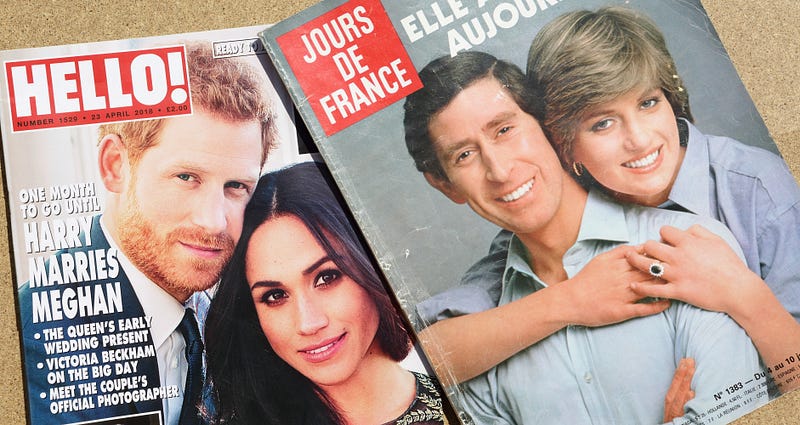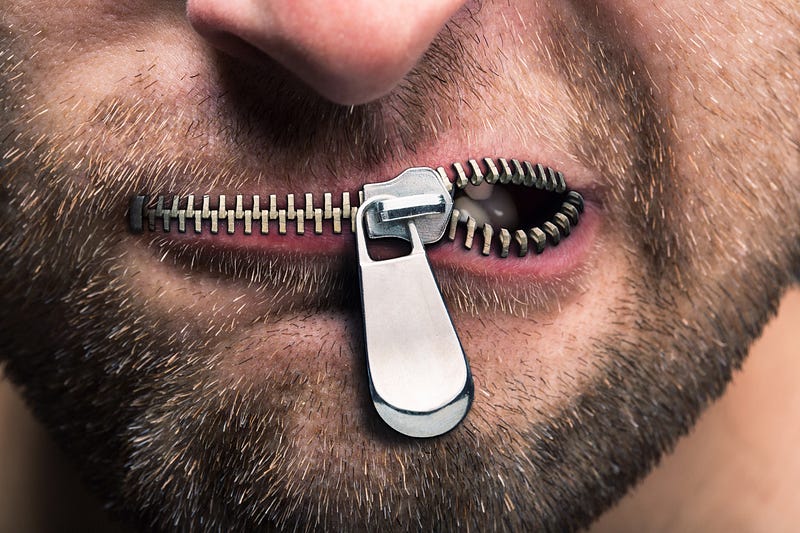
Harry and Meghan: How did it Come to This?
A family therapist takes a look at the royal family’s problems.
Like many, I’m fatigued from the continuing saga of the British royal family, the feuds, gossip, estrangements, and bucketloads of first world problems. But as a marriage and family therapist, I see some gold to be mined.
Hopefully no one is surprised that the Meghan and Harry debacle resulted in anything but their semi-exile from the royal family, but do I think it was a display of functional family dynamics? Of course not. I assure you that if the royal family has a person trained in healthy family dynamics on their payroll, they are ignoring their advice.
What do healthy families look like? Think in terms of transparency, being genuine, loving and accepting of one another, kindness, supportive, compassionate, flexibile … those sorts of rare things. Unfortunately, I see this family as reacting and living primarily out of fear of what might happen, which is never a good idea, as so often the things we worried about never come to pass. Fearful action often undermines decision making that could benefit the whole family, instead of just an institution and the most powerful family members, the heirs to the throne. The better idea in families is always love and acceptance based.
Here is what I see:
· You have one of the most conservative, white, privileged families on the planet with more power and money than most of us can imagine. Due to inheritance, they have palaces, servants, priceless jewelry, fancy clothes, power, access to anyone in the world, chauffeurs, security and more, but it is all enabled at the pleasure of the British people. This family is highly motivated not to lose a good thing.
· Throughout the last 90 years, the royal family’s drama has tested the patience of the populace, beginning with the abdication of King Edward VIII in 1936 so he could marry the woman he loved. For those of you that don’t know, Britain’s sovereign is head of the Church of England, and in 1936 that meant the King had to follow strict, conservative, royal doctrine, which stated that an heir to the throne must marry an untainted, aka virginal woman. Edward’s choice, Wallis Simpson, had been married and divorced twice, which was quite scandalous in the day.
· When Edward abdicated, he became a pariah in his family and was given an allowance and exiled to France. His family had almost no contact with him after that, including his own mother, Queen Mary. The lesson: Don’t do anything to rock the family business or we will shun you forever. Your actions will be held over the family’s head for decades to come of how not to act. Business over blood, to the end.
· Since then, the overriding cloud hanging over the royal family has been … don’t do anything that might screw up the monarchy. Any prominent family member who says or does anything that threatens the family business, is subject to loss of power, position, protection, and potential exile and banishment.
Since Edward’s abdication and exile over 80 years ago, not much has changed when it comes to receiving the benefits royal life has to offer. The only softening of position over the years I can remember has been to allow first born girls to become Queen, even if a son is born afterward, and yes, you may now marry a divorced person and still become sovereign.
For the core group of working royals, however, it is still, “go along, follow the rules, do nothing controversial, and you may reap the family’s many rewards.” Problem is, the royal family has made a deal with the devil in that to maintain the viability of the crown and its institution, they have, will and continue to throw anyone and everyone, family or not, under the ornate eight-horse-drawn Gold State Coach to be trampled if they don’t follow the rules and do as they’re told, no matter how miserable the circumstances are that you’re subjected to — think Fergie, Diana, both famous beyond words, left to fend for themselves.
Healthy families exhibit loyalty and support to one another, even when in disagreement. The more strict, rigid and controlling a family is, the more dysfunctional it will be. Mired in rules and protocol, the royal family black sheep will be cast out like lepers. One of the most recent examples is Prince Andrew, the Queen’s son, who was accused of criminal behavior in allegedly having had sex with an underage woman. The harsh consequences Prince Andrew has endured, loss of titles, income, status as a working royal, make sense considering his actions.
But then there is Harry and Meghan, who have done nothing illegal. They simply decided to change their lives to escape the bullying and badgering of the British tabloid press, but only after their family refused to help. There was no compassion or empathy for how hard it is for anyone to assimilate into the world-famous fishbowl of scrutiny the royal family attracts, much less an American actress and biracial working royal.
Where King Charles and William, the Prince of Wales erred, in my opinion, is not adapting to the needs of individuals in their family in the 21st century. If the King’s youngest grown son, a working royal, has a wife who happens to be biracial and comes under continual attack by a blood thirsty press, reminiscent of his mother Princess Diana so long ago, why not rally around her showing compassion and caring? Why not have her and Harry’s back and get it right this once, protect her and get the struggling family members all the help you can muster with the power and money you possess?
In the recent Netflix special, Harry described being continually surprised by the you’re on your own attitude of his brother and father, the ones who stand to lose the most in any royal scandal. No compromise was offered, Harry and Meghan had to suck-it-up-buttercup, and if you’re not in, you’re out.
Harry chose to remove his family from what he perceived as racism, personal attack, inaccurate and sensationalistic reporting, and lack of support and assistance. He took his new family to Canada, part of the Commonwealth, where he could still operate as a working royal, and then to California after his family denied Harry’s request that he and Meghan be able to continue their roles as working royals on a part time basis.
At the time I had hoped they would work something out that worked for everyone, but it was not to be. Just like in 1936, it’s “Full time working royal or not at all,” and in their decision to cut Harry and Meghan out of the royal pie, the family missed an opportunity to bring diversity to an institution that looks, lives and acts little like the Commonwealth it represents.
The biggest error of all, in the end, was the lifting of financial support and police protection, leaving Harry, who is one of the most famous and hounded people in the world because of who his parents are, left to fend for himself. Unfortunately, Harry is keenly aware of the dangers of being a famous royal without police protection.
When a person feels they have nothing to lose, because they have already lost everything they feared losing, they are then free, and will do what they must to survive. Further, when the people you love and grew up with turn their back on you, all bets are off in family dynamics. The question becomes, “They did not protect you, should you then protect them?”
Harry and Meghan had to raise huge funds to support the expensive lifestyle they must lead, because that is what protects them — a heavily guarded and secured inaccessible home in which to live, and protection when moving about. The most valuable asset Harry and Meghan possess is their story, and so they told at least part of it for a fee, and the portrait they painted of life inside the palace is less than flattering. Not a surprise, a lot of true stories about families are that way.
Perhaps having the truth told will wake the royal family up to a much-needed position of softening, flexibility, and compassion, but I doubt it. Family business over family well-being was the choice before, and it’s the choice now, the royal family doesn’t seem to learn much from past family history … but they might one day, when the British people finally tire of watching the royal family devour their own.
“Doctor Becky” Whetstone, Ph.D. (her legal name is Becky Whetstone Cheairs) is a Marriage and Family Therapist in Arkansas and Texas. She sees clients by appointment and hosts the You Tube Channel ‘Call Your Mother’ with her daughter, Casey Marie Schmidt. Learn more or contact her at www.doctorbecky.com.





 Becky Whetstone is an Arkansas native and has a Ph.D. in Marriage and Family Therapy from St. Mary’s University in San Antonio, Texas. She is a Licensed Marriage and Family Therapist (LMFT) in Texas and Arkansas.
Becky Whetstone is an Arkansas native and has a Ph.D. in Marriage and Family Therapy from St. Mary’s University in San Antonio, Texas. She is a Licensed Marriage and Family Therapist (LMFT) in Texas and Arkansas. 





















































































































